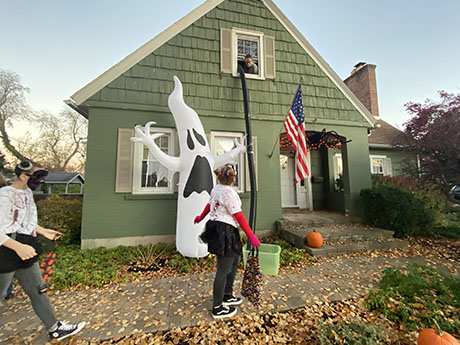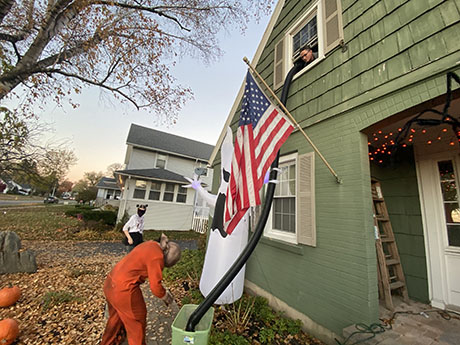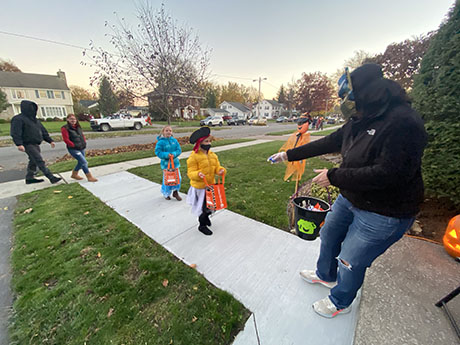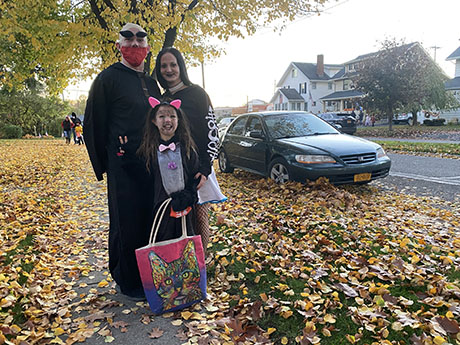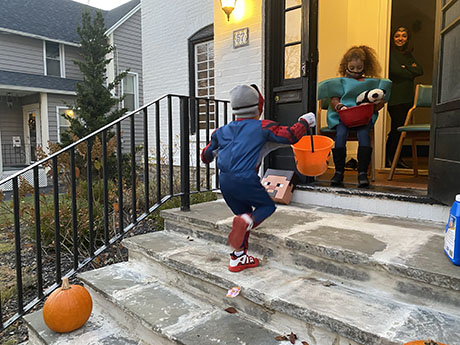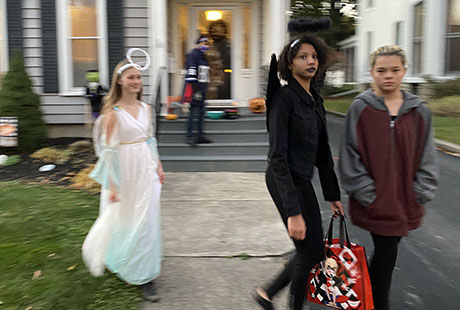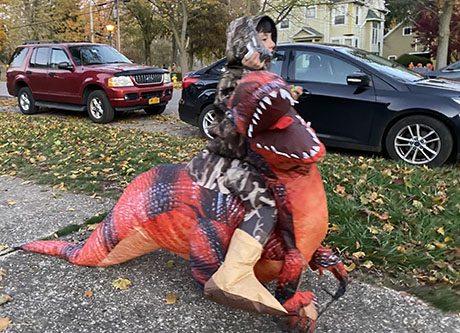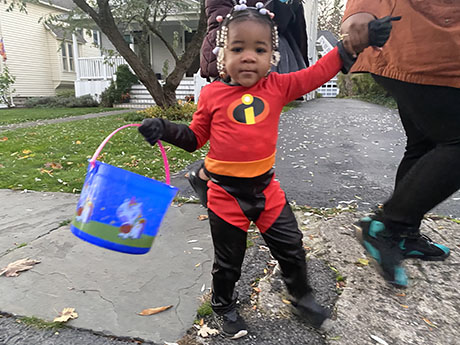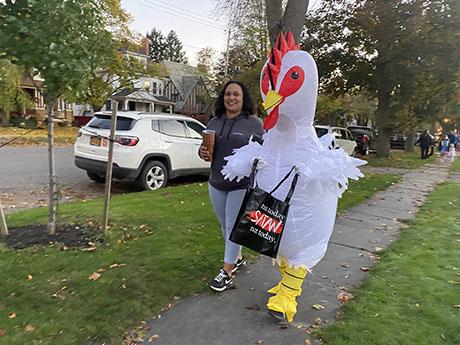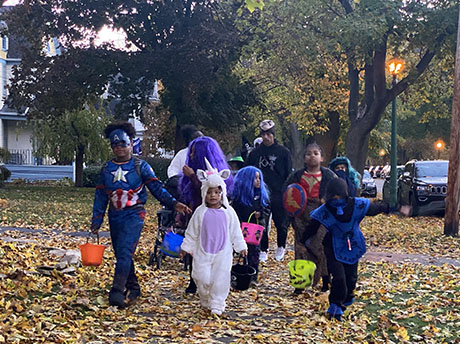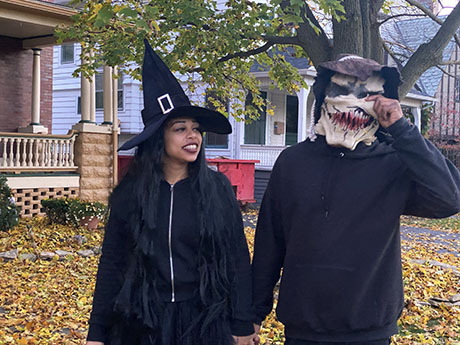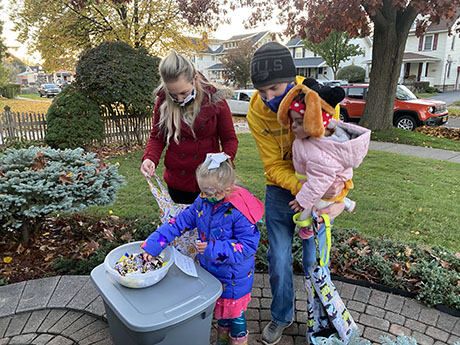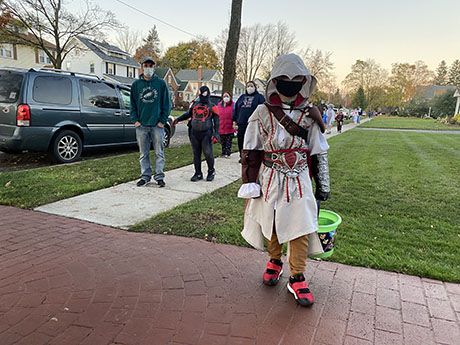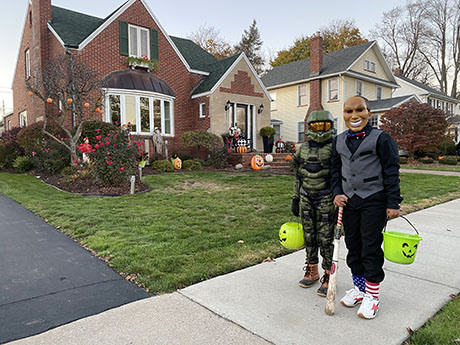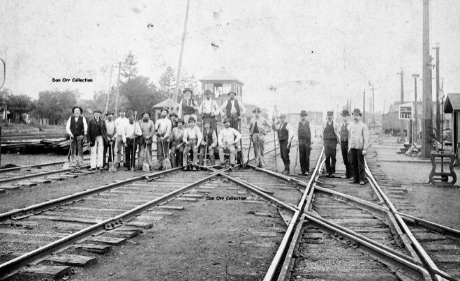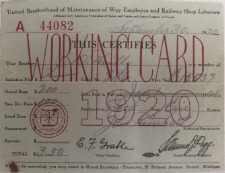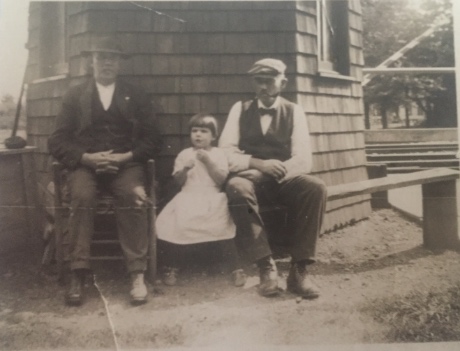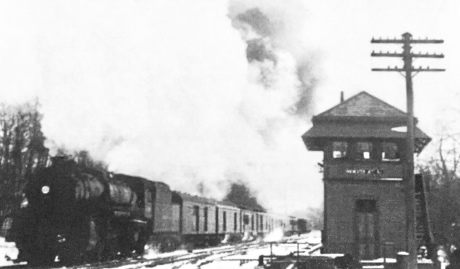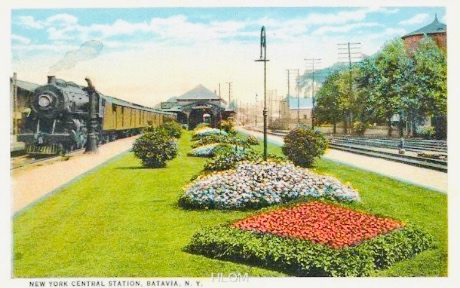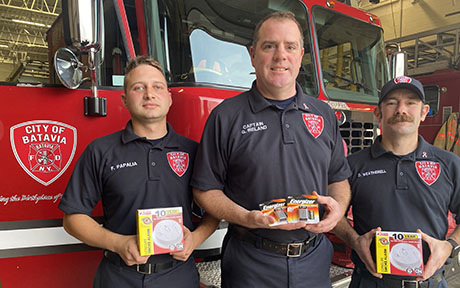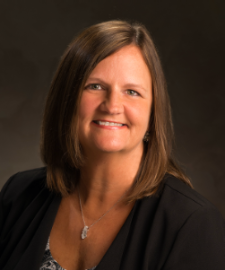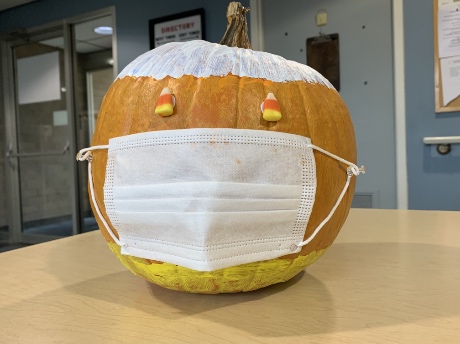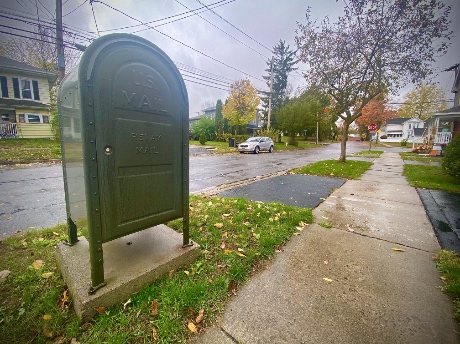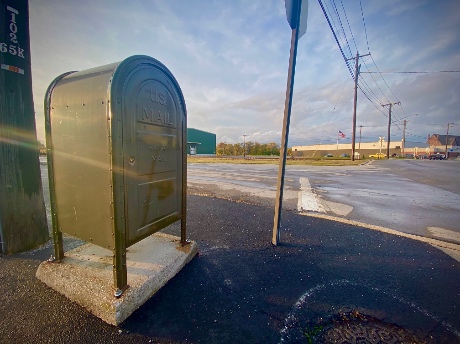From the mid 1800s until the 1960s Batavia could rightfully be called a railroad town. With four different rail lines going through it from Walnut Street, through the Jackson / Ellicott area and across Harvester Avenue and Cedar Street, there was train traffic 24 hours a day.
Many of the local men employed by the railroads were of Irish or Italian descent. So, on a summer day along the line you could probably smell the aroma of boiling potatoes and corned beef (on the rare occasions when it could be afforded) or garlicky marinara sauce made with homegrown tomatoes wafting from open windows.
There are many former or current Batavians of a certain age (meaning old) whose parents or grandparents made their living working for one of the rail lines in some capacity. I think my grandfather was unique in that regard because in his 30-year career he worked in several varied job positions for three different railroads: the Lehigh Valley, Erie, and New York Central.
James D. Reilly was my paternal grandfather. He died in 1931, 16 years before I came along. He was born in 1870 in Mendon to Irish immigrants Patrick and Bridget Costello O'Reilly. Patrick, who was a farm laborer, and Bridget raised six children in a house about the size of today's two-car garage. The term “dirt poor” certainly applied to them -- all the way down to the earthen-floored root cellar of their tiny house.
Rochester Junction
The house was located very close to Rochester Junction, which was a stop and transfer point on the Lehigh Valley Railroad. From there some passengers would switch trains onto a spur, which went to downtown Rochester to a station now occupied by the popular Dinosaur Barbecue Restaurant on Court Street.
As today's patrons gobble down ribs and sauce-slathered brisket they might picture in their mind the chaotic hubbub of travelers in their suits, bowler hats and corseted dresses rushing to and from the steam-emitting trains.
About 1900 James D. Reilly got a job as a laborer working for the Lehigh Valley. By 1905 he had moved to the position of Towerman and worked in the interlocking tower at Rochester Junction. It was the responsibility of the men in the tower to operate the switching equipment to enable trains to change from one track to another.
Every model railroad enthusiast worth his salt (or coal) knows that each rail company had their own distinctive color scheme for their towers. The Lehigh Valley was light and dark gray, the Erie was dark green, and so on.
The Batavia tower shown in the top photo of the track gang at the Jackson and Ellicott Street crossing was eventually bought and moved to Fairport and placed next to the Erie Canal, where it now serves as the office for a canoe rental company. This is somewhat ironic because it was the boom in railroad transportation that sounded the death knell for the canal in the late 1800s.
When James was a towerman, according to the 1905 State Census and the Mendon Town Historian Diane Ham, it is likely that he was living on railroad property in a small “shanty” with his wife, Catherine Nussbaumer Reilly, whom he had married in 1904, and her elderly father George.
By 1910 James was promoted to foreman of a track crew. It was harder work but more pay. Track maintenance was backbreaking work in the blazing heat of summer and even harder in the freezing and snowy winters, but the family needed the money.
By then his father-in-law had passed away and he and my grandmother had two children, George and Margaret. They moved to a rented house still near the railroad but near what is now Clover Street in Mendon.
Moved to Batavia
In 1911 my father James Francis was born and then my aunt Katherine in 1913, both in Mendon. At this point the Reillys (the O had been dropped from their name) with a growing family had need for better housing. You can almost hear my grandmother saying to her husband, “James, I'm sick of living in shacks with all these kids! We need a house!” So, about 1915 the family moved to Batavia. Their final child, Mary, was born there in 1919.
In Batavia, James continued as a track gang foreman, but with the Erie Railroad. At first the family lived in a rented place on Wiard Street off East Main Street between Bank and Summit streets.
But sometime before 1920 he finally was able to purchase his own home at 27 Cedar St. The house wasn't large, but had three bedrooms and two floors, which must have seemed like a mansion to someone who grew up in what was little more than a shack.
The house was directly adjacent to the four tracks of the New York Central Railroad. Chugging and hissing steam engine trains passed by at all hours of the day and night, plus they lived next to a crossing so whistles had to be blown on every approach.
This cacophony of sound might have bothered some people, but the Reillys were used to it and slept like proverbial babies.
Their next-door neighbor was Marty O' Brien, another Irish immigrant and also a railroad employee. Back in those days, crossing gates had to be raised and lowered manually and that was Marty's job, so he just had to walk past Reilly's house to his work shanty by the tracks. Marty played the violin and would bring memories of faraway Ireland with his tunes.
Cedar Street was the ideal place for railroad employees to live because the tracks of four rails -- Erie, New York Central, Peanut and Lehigh Valley -- all bisected that road at some point. But, since three of the railroads crossed Cedar at street level (the Lehigh had a bridge) traffic could be held up interminably -- horse-drawn wagons and later automobiles.
Union Man
James was a loyal union man and paid dues of $3.50 every six months to The United Brotherhood of Maintenance and Way Employes (sic) who were affiliates with the American Federation of Labor (AFL).
This union membership paid off for him when sometime between 1920 and 1925 he sustained a serious leg injury on the job. Apparently, a section of track was inadvertently dropped on his limb causing a severe enough injury so as to make it impossible to continue on the track crew.
However, the union stepped in to make sure their brother and his family would be provided for by arranging a transfer to the New York Central Railroad. In the late 1800s that railroad had built and staffed a nursery in Batavia for the purpose of growing and providing plants and flowers for all the grounds of NYC Stations between Buffalo and Syracuse.
James was assigned to that nursery to raise and care for the flowers as it was a less strenuous task for a man with a debilitating condition, but one that continued to enable him to earn a salary.
The End of the Line
Unfortunately, my grandfather was stubborn about his medical care, as it seems many men were in that time, and he refused to see a doctor on a regular basis. In 1931 he developed sepsis (blood poisoning) due to continued infection in his leg.
He passed away at the age of 61 in his home on Cedar Street next to railroad tracks that had been a part of his life for 30 years.
It is a fanciful notion, but it gives comfort to think that perhaps as James D. Reilly passed from this life a lonesome whistle blew on a passing train signaling the end of shift for a hard-working railroad man.
Epilogue: Even though James D. Reilly had passed away, the house at 27 Cedar St. remained a part of the Reilly family for almost 60 more years. In 1939 his wife Catherine, my grandmother, also died there.
Their son George, my uncle, married in the early 1940s and purchased a house up the street at 5 Cedar St. He and his wife, Helen, lived there until the 1980s when he passed away.
James' and Catherine's daughters, Catherine and Margaret (my aunts Kate and Peg) never married and lived at 27 Cedar until 1990. Neither of them ever had a driver's license but they both managed to work at the P. W. Minor Shoe Factory on State Street for more than 40 years.
My brothers and I spent many an hour and night at our aunts' house. We could always count on two Christmases, two Easters, and two Halloweens, courtesy of aunts Kate and Peg who fondly (and embarrassingly) called each of us “Honey Boy."
The New York Central was moved farther down Cedar Street in the late 1950s when the tracks became an interference with traffic in the City of Batavia. You could certainly still hear the sounds of the trains, but it no longer seemed that they were barreling right through the living room.
In 1989 Kate died and soon thereafter Peg went to a nursing home. The contents of the longtime Reilly home were disposed of at auction and the house was sold. It was the end of a 75-year era of Reillys at 27 Cedar St. in Batavia.
Top photo: Track crew at the intersection of the Erie and New York Central railroads in Batavia circa early 1900s, from the Dan Orr Collection courtesy of the Holland Land Office Museum.
Photo below: James D. Reilly, right, his daughter Mary Reilly and an unidentified man sitting outside a railroad crossing guard shanty in Batavia in the early 1920s. Courtesy of Dave Reilly.
Below: Interlocking tower at Rochester Junction in the early 1900s, courtesy of Diane Ham, Town of Mendon historian.
Bottom, postcard of New York Central Railroad Station in Batavia in the early 1900s, courtesy of the Holland Land Office Museum.
